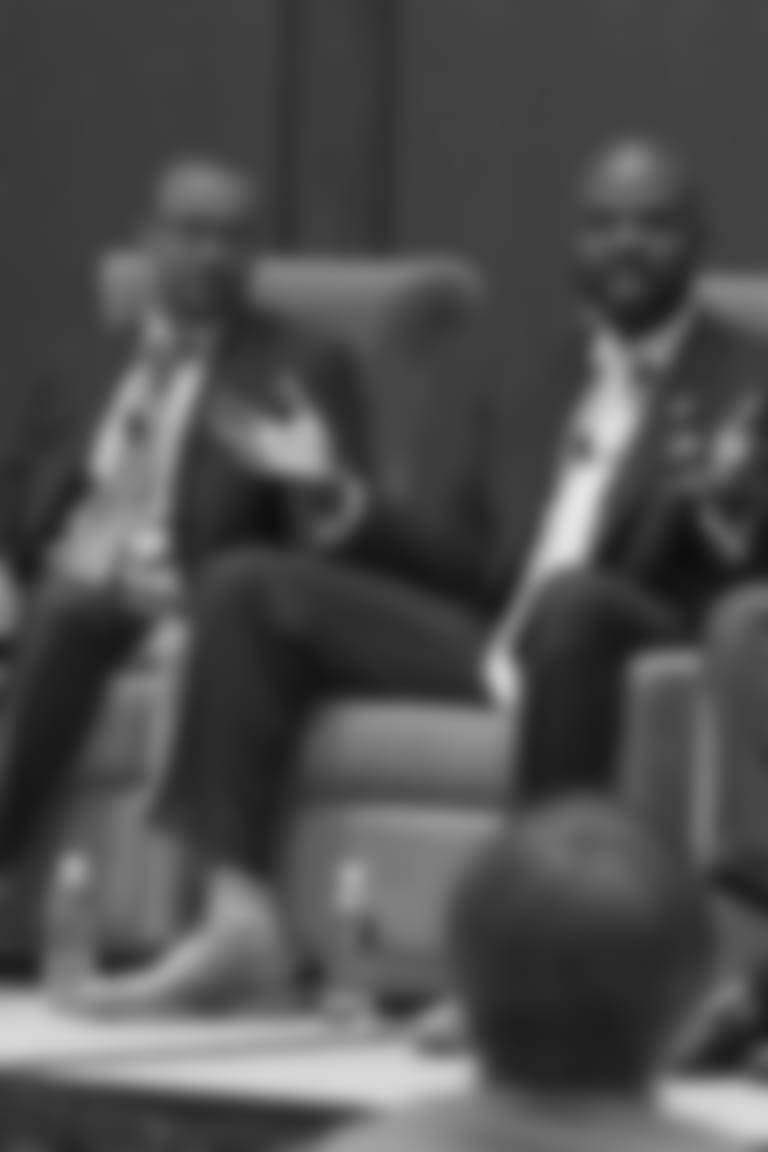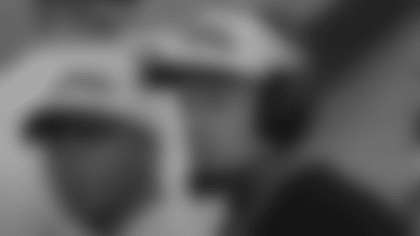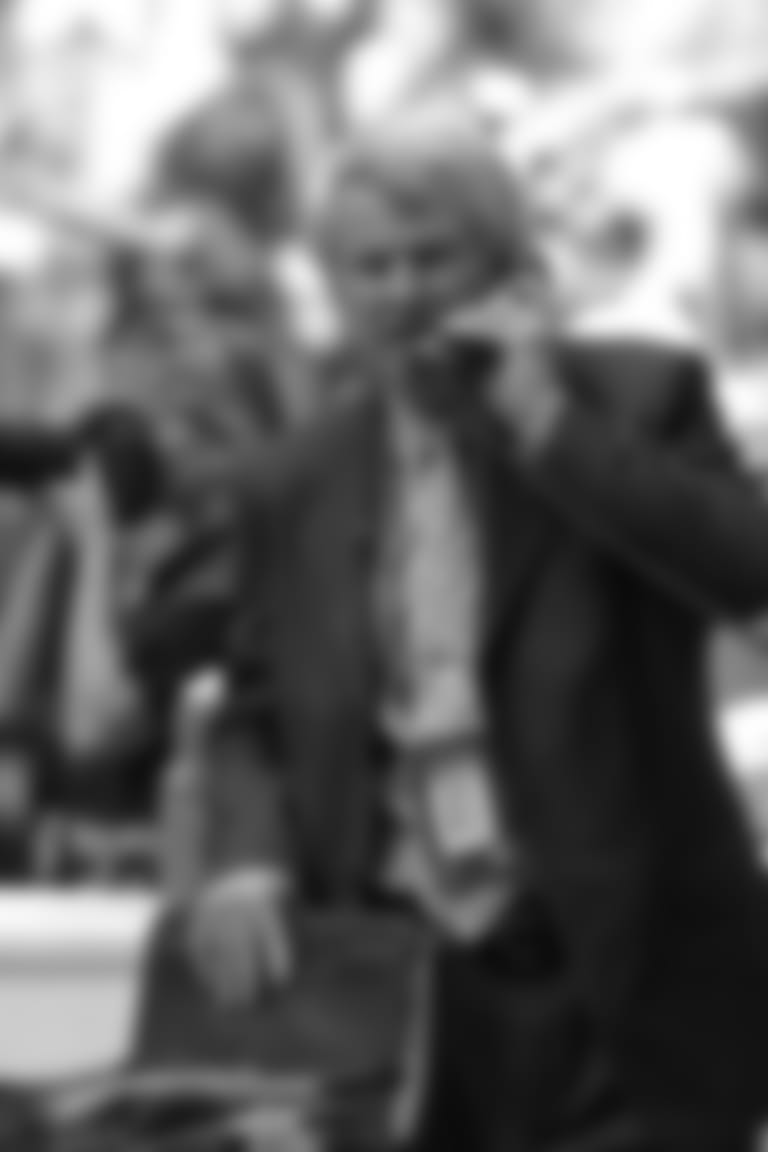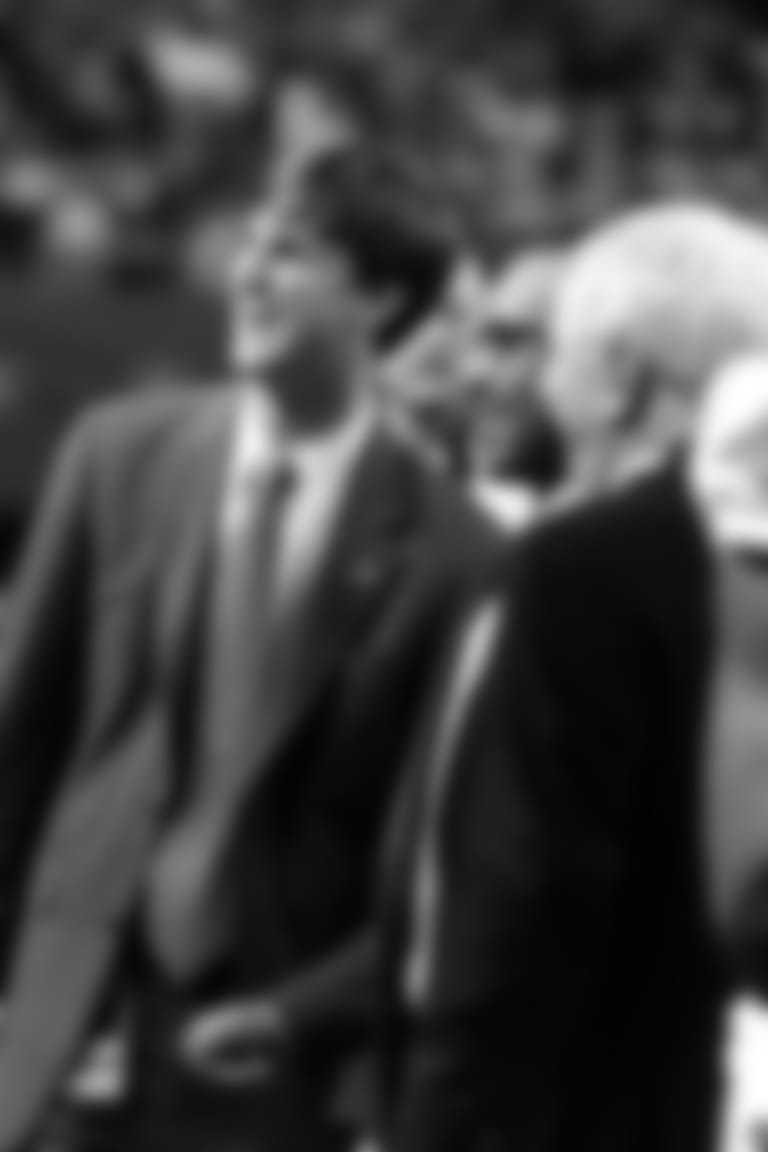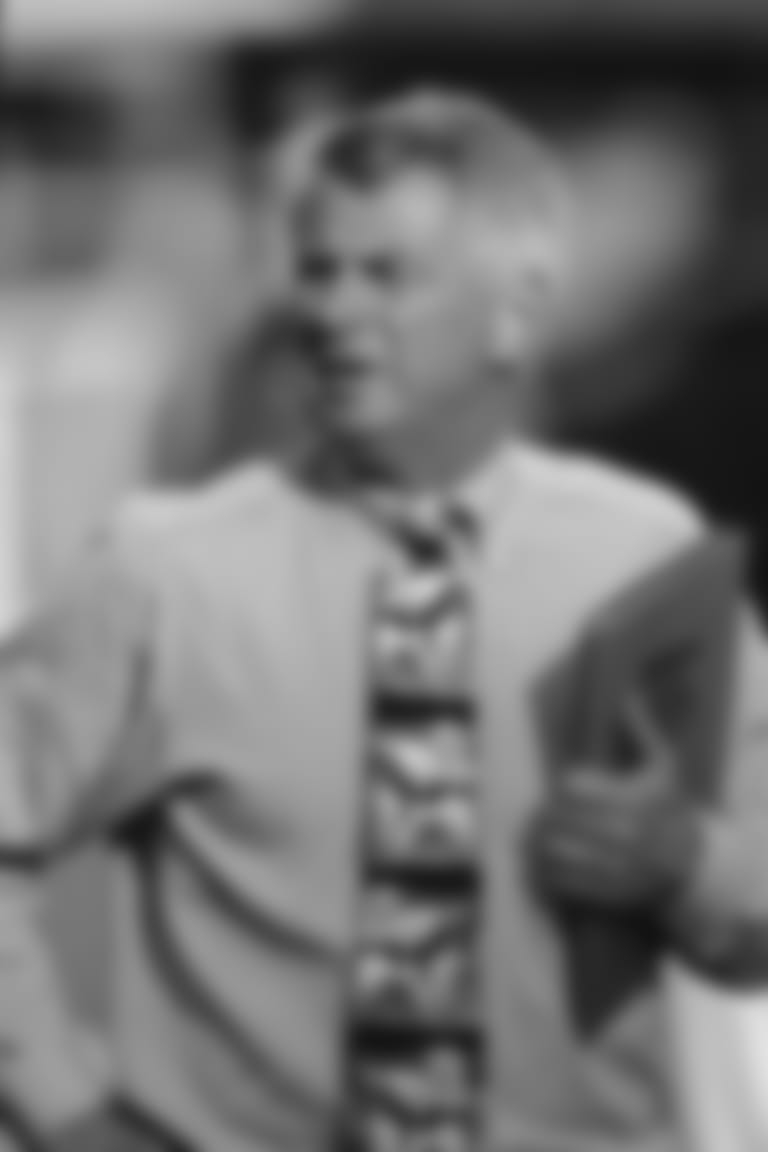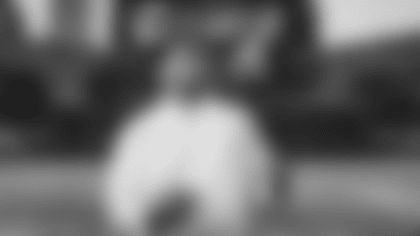CHARLOTTE — South Carolina State sports information director Bill Hamilton had known Charlie Dayton since the early 1970s, when he was young in his job, and Dayton was in his at Furman.
So when Dayton became the first head of public relations for the expansion Panthers in 1994, Hamilton thought he might be able to use an old connection for some of his young students at the HBCU in Orangeburg, S.C.
"I thought maybe Charlie could help me get a few of my student assistants in to see a game," Hamilton said.
Dayton did far more than that, for far more people than Hamilton, creating a legacy of opportunities for so many future leaders in his profession. That's part of the reason he's being honored this week at the Pro Football Hall of Fame with the Award of Excellence, which recognizes five pioneers in the fields of NFL public relations, along with assistant coaches, athletic trainers, and equipment managers.
It's a rare group — effectively the first class of the public relations Hall of Fame — and there's a reason Dayton is in it. His list of accomplishments in the NFL is long (he was the first PR person named to the All-Madden team, for goodness sakes). But his list of people he hired working in the NFL is even longer, with former assistants leading their own departments and working in the league office now (and one of them also happens to be an NFL general manager).

Dayton led by actions, not just opening a door but providing a map and showing them how to use a compass so they could read it, and then teaching them how to pass those skills to others. And he did it with a caring, understated style that often obscured the fiery competitor beneath.
But being good at his job is only the beginning of why Dayton holds a special place in so many hearts across the NFL. He created opportunities for so many people, who are carrying the lessons they learned inside Bank of America Stadium from one of the masters.
And they've all got a story to tell.
One of Hamilton's students at South Carolina State — though as Hamilton admits with a laugh, not necessarily one of his best ones — was a wide-eyed kid named Ted Crews. "He was a little bit lazy at first," Hamilton said with a laugh. "I thought at first he was just doing it for a little pocket money so he could go out on the weekends."
"Oh, it was absolutely just a hustle then," Crews said with a laugh.
Now that he's the executive vice president of communications for the Kansas City Chiefs, it's far more than a hustle for Crews. Although rearranging his family vacation plans so he could make the 12-hour drive from KC to Canton with his son TJ this week took some hustling, it was also a pilgrimage of devotion.

"There's no way this man's going into the Hall, and I'm not going to be there to see it," Crews said, choking up on the other end of the phone, because that's how Crews rolls, and how Dayton has impacted him. "Every meal my family eats, it's because of him."
And Crews remembers exactly when it all began.
On Nov. 2, 1997, Hamilton got up at 6 a.m. in Orangeburg and dragged Crews along to Charlotte. Dayton had in fact, gotten one of Hamilton's students in to see a game. And it left a mark. It's fair to say Crews gushes about the details, from sitting on a stool in the press box directly behind legendary Raiders owner Al Davis, to the sideline fight that broke out between the teams that day.
And then he met the man who'd change his life.
"This short, gray-haired guy walks up, and he introduces himself to me," Crews said. "Here's this 20-year-old, with terrible grades, and this mountain in his profession, and he walks up and says 'It's nice to meet you, I've heard a lot about you.'"
That introduction led to internships with the Panthers in 1998 and 1999, giving Crews a chance to learn, to push himself, and to be pushed. Crews is one of those natural PR guys, with an easy charm, and a gift for making connections and making people comfortable. But he was still a late-round pick from a small school who could use a year on the practice squad. He was good at big-picture stuff, but he lacked polish, and details sometimes got away from him. And it almost ended up with him walking away from a job he loved, because he was afraid he wasn't pulling his weight.
But at that moment, Dayton offered more than just encouragement, he offered tangible help. Because he saw something in Crews that deserved more than just a key to the pool and a chance to sink or swim.
Crews was good. But his written copy still had too many grammatical issues. So at Crews' annual review, they talked about his progress, and Dayton arranged for an English tutor to help Crews after hours with the mechanics of writing, to strengthen his off-hand so to speak, so all his other natural skills could shine.
"I walked in that day thinking I was going to quit, thinking I couldn't do it, because I was terrible and I was holding everybody back," Crews recalled. "He saved my professional life that day, because he said, 'You can do things naturally that I can't teach, but you've got to believe in it because I believe in it.' So he sends me to a tutor. Who does that? He could have chosen a million people to replace me.
"But he invested in me, and he changed the course of my life. That's who he is, he loves you, and he's all in if you're in. He just has this beautiful, cultivating spirit."



